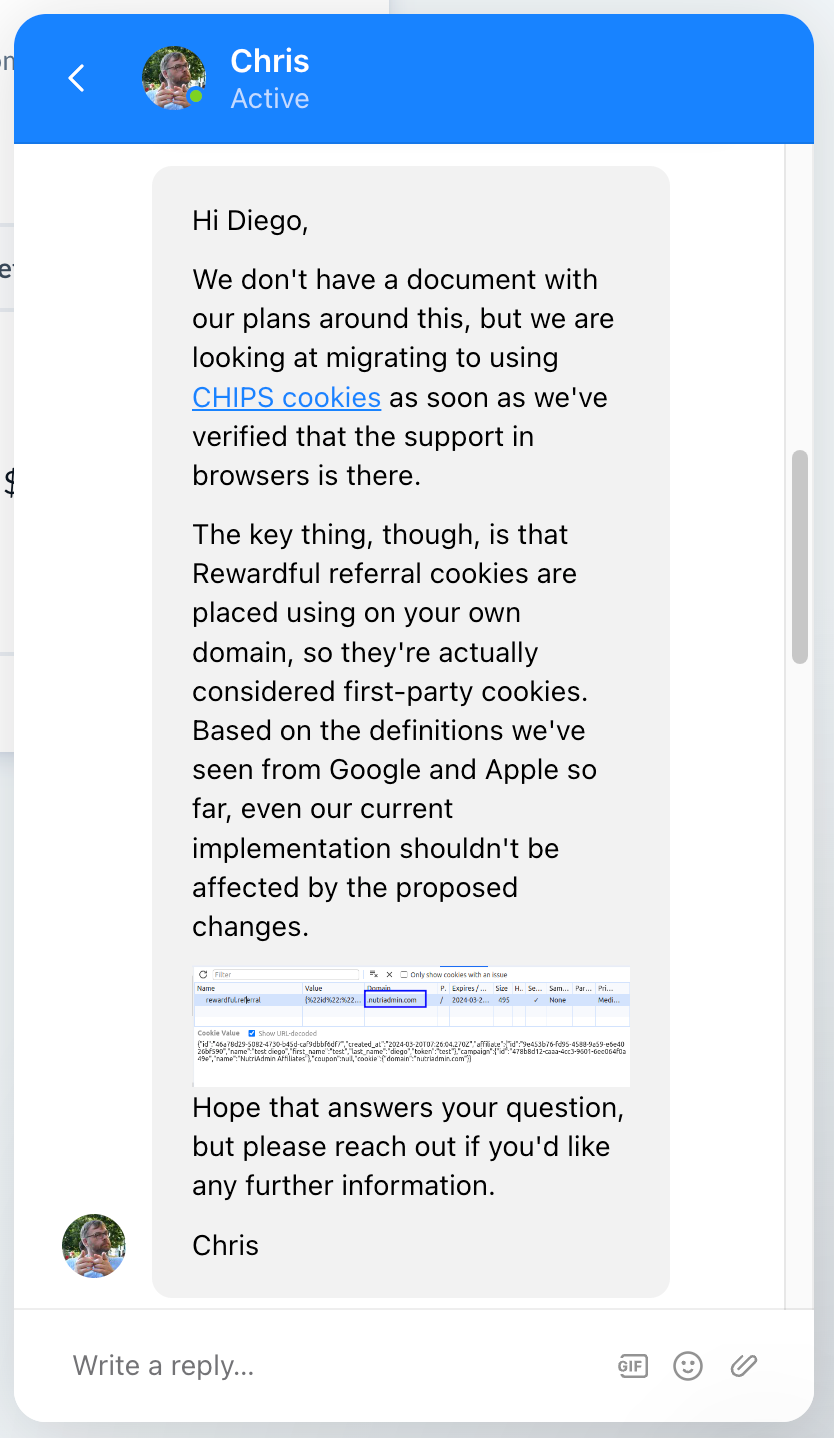By the end of 2024, Google will update Chrome to phase out third-party cookies. This is part of their plan to enhance the privacy of users.
This change has important impact for online marketers, the advertising industry, and several companies.
In the case of the NutriAdmin affiliate program, this change to Google Chrome will have no effect to how we attribute sales made possible via affiliate traffic. So, if you have joined our affiliate program, you can rest assured you won't be impacted.
The reason the change won't impact the NutriAdmin affiliate program is because we keep track of affiliate traffic using first party cookies, as opposed to third party cookies.
You can read more below for context.
Third party vs first party cookies
As per Wikipedia: Third-party cookies are HTTP cookies which are used principally for web tracking as part of the web advertising ecosystem. While HTTP cookies are normally sent only to the server setting them or a server in the same Internet domain, a web page may contain images or other components stored on servers in other domains.
In other words, third-party cookies allow a domain or website to track users across other websites.
In contrast to third-party cookies, first-party cookies are controlled by the website that incorporates them. These cookies track users and collect data that doesn't get shared across multiple sites.
The image below shows the cookie data for our affiliate tracking cookie. You can see that the domain is set up to nutriadmin.com, which makes it a first party cookie.

How NutriAdmin keeps track of affiliates
We use Rewardful, which is a professional affiliate marketing software platform. Rewardful allows us to:
- sign up affiliates that join our program
- provide a tracking link that the affiliates can use to send traffic to NutriAdmin
- track if the prospects you send our way make a purchase using a first party cookie.
When a prospect lands on our site using your affiliate link, a first party cookie is placed on their browser. This cookie will last for 60 days, and if the customer makes a purchase during that time frame, then the sale will be attributed to the affiliate.
Once the prospect makes the first sale, then their data is saved permanently on Stripe, the payments system we use. Rewardful integrates with Stripe and stores the affiliate ID automatically in the client account on Stripe.
This is a fair system where we have a trusted third-party keeping track of the data in a deterministic and straightforward way. You can log in to your own Rewardful dashboard at any time to see stats and data, like the number of prospects you have sent our way.
Cookies in other browsers
Google Chrome has by far the largest market share in the web browser market. Depending on where you look, the share can go up as high as 65-80%.
That being said, there are other web browsers out there that significant numbers of people use, including:
- Safari
- Firefox
- Brave browser
- Microsoft Edge
As it turns out, Safari, Firefox and Brave browser already block third-party cookies at the time of writing this article (March 2024). They have been advertising this feature of their browser for a while now, as a privacy-focused selling point to users.
The affiliate program cookies we use from Rewardful work completely fine at the moment with Safari, Firefox and Brave. This is because they are first party cookies, as opposed to third party cookies.
Given that other browsers have already done what Chrome is planning to do, there is no reason to believe that the update in Google Chrome would change anyting. Our affiliate program integration with Rewardful should work even after Chrome makes this update.
Commentary from Rewardful
We reached out to the team at Rewardful just to make sure and they confirmed the changes to Chrome shouldn't affect the system.
In fact, the team at Rewardful are looking at ways to improve their technology and considering upgrading to CHIPS cookies, which are a newer technology to make the solution more future-proof.
You can see an extract of the conversation we had below. You can also click here for an article from Rewardful explaining the topic in more detail.

Conclusion
The main goal of the shift in technology to regulate and control cookies is to enhance user privacy. A lot of the changes have been heavily influenced by the GDPR law.
Certain online marketing activities, especially more intrusive ones such as tracking users across multiple sites may be affected.
Not all cookies are equal. Some cookies are required for the normal functioning of a site, like keeping track of whether a user has logged in to a site or not. Similarly, the type of cookies used to attribute sales (e.g. for affiliates, PPC advertising, etc) can easily be made first party cookies by vendors.
In other words, it's possible to keep track of whether affiliate traffic is making purchases on a referred site with first party cookies, respecting the user's privacy.
In terms of the NutriAdmin affiliate program, the changes to third-party cookies from Google Chrome won't affect the system and it will continue to work as normal.